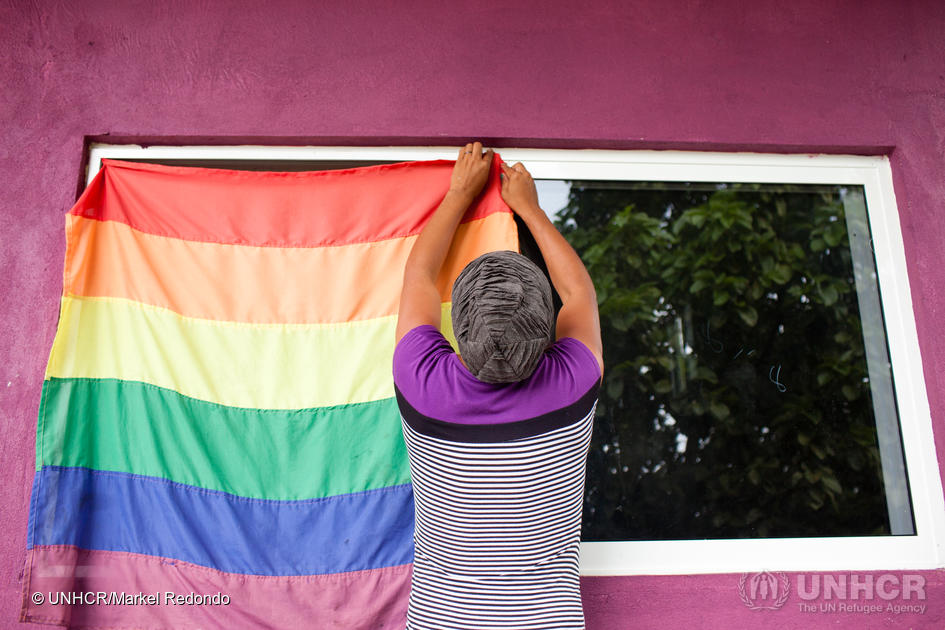SOGIESC and working with LGBTIQ+ persons in forced displacement
SOGIESC and working with LGBTIQ+ persons in forced displacement

Asylum-seekers, refugees, internally displaced people, stateless people and others of concern to UNHCR have diverse sexual orientations, gender identities, gender expressions and sex characteristics (SOGIESC). They face a complex array of challenges and threats in their countries of origin, and asylum, including discrimination, prejudice, violence and difficulty accessing assistance.
UNHCR and IOM have jointly developed this comprehensive training package on the protection of people with diverse SOGIESC for personnel as well as the broader humanitarian community.
About the Training package
UNHCR’s effort to improve the protection of forcibly displaced and stateless people with diverse SOGIESC include expert global capacity assessment surveys and consultations with staff, operational partners and lesbian, gay, bisexual, transgender, intersex and queer (LGBTIQ+) people with lived experiences, as well as the development of guidelines, strategic messaging from UNHCR senior leadership, and mainstreaming LGBTIQ+ issues in mandatory learning programmes.
The training’s modules cover a wide variety of topics, including terminology, international law, communication, protection, assisted voluntary return and reintegration (AVRR) and Refugee Status Determination (RSD), all with a focus on practical guidance for UNHCR and IOM offices and partner organizations.
Before you begin
Check out this guide for more details on the modules and how to use them:
Training modules
Additional resources
- SOGIESC Poster
- Diverse Gender Identity Poster
- Numbered Table Cards
- Daily Evaluation / General Evaluation - use these templates to collect learners' feedback on the modules.
For questions on the training package please contact the Community-Based Protection Unit in the Division of International Protection: hqts00@unhcr.org









